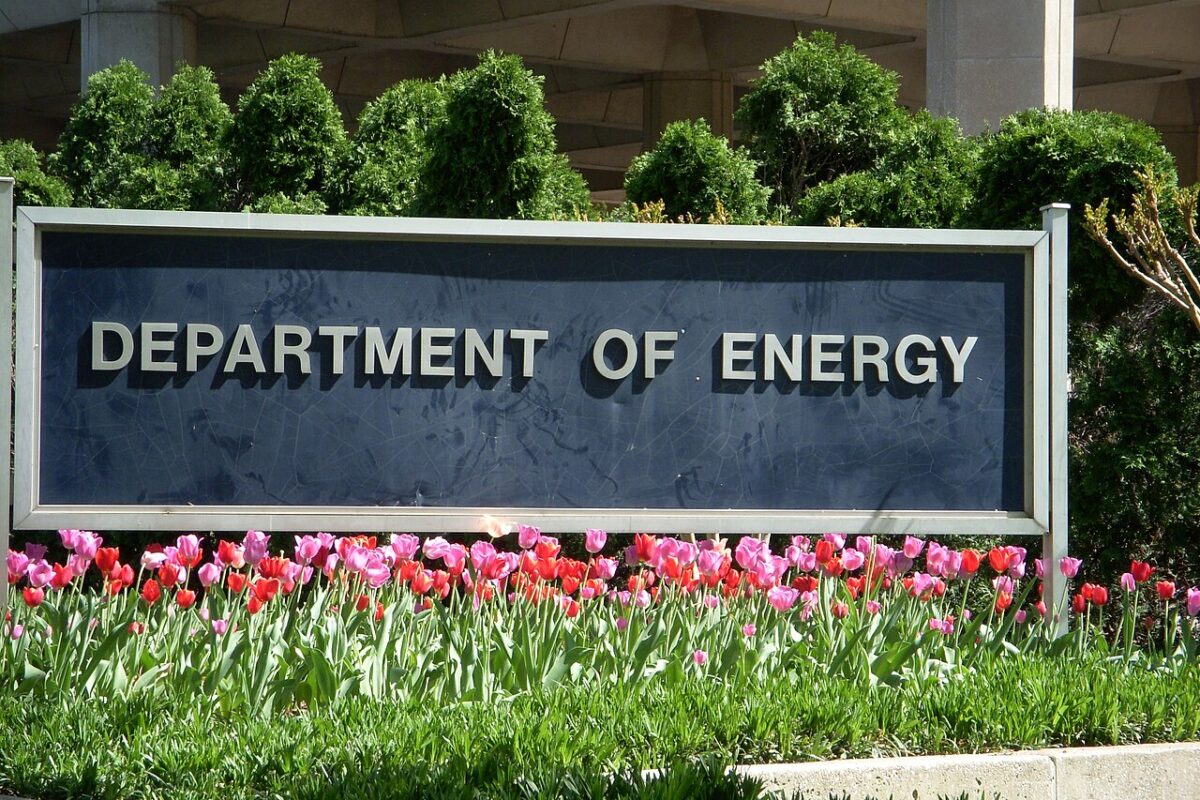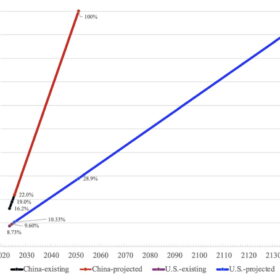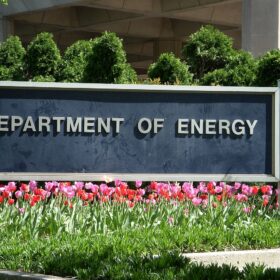Ever since Republicans took the majority in the U.S. House in 2010, there has been a familiar refrain that the Democratic Party wants to act on rapidly decarbonizing electricity to address the climate crisis, but has been prevented from doing so by the Republicans and their ties to the fossil fuel industries.
There is only one problem with this analysis: it is not entirely true.
It is true that the Republican Party at the federal level has been utterly resistant to any meaningful action to reduce greenhouse gas emissions, and with a few notable exceptions has been largely hostile to renewable energy. But what is not necessarily true is that the leadership of the Democratic Party has the political will to address this crisis, or to move boldly on expanding the deployment of renewables.
The most blistering example of the complete irresponsibility of Democratic Party leaders on this issue is the appointment of Senator Joe Manchin (D-West Virginia) to ranking member of the Energy and Natural Resources Committee, which has been described by 350.org as “completely at odds with any plan for real climate action”.
In fact, Manchin is the only Democrat on the Energy and Natural Resources Committee who failed to sign on to a letter calling on FERC appointee and former professional fossil fuel advocate Bernard McNamee to recuse himself from any rule makings where one resource would be pitted against another.
This should not be surprising, as Joe Manchin had long retained financial ties to a coal brokerage that he helped run before being elected to the U.S. Senate. According to Open Secrets he is also the fourth-largest recipient of coal mining donations in the U.S. Senate to date, and in a recent television commercial fired a gun at a climate bill.
In short, that Democratic leaders have allowed this to happen shows a shocking disregard for energy issues and the well-being of future generations.
Energy and climate not a top priority for Democrats
While as the leader of senate Democrats Chuck Schumer (D-New York) oversaw this appointment, it is a sign of a deep lack of commitment on these issues from leading Democrats overall. There were four other Senators – including Bernie Sanders (I-Vermont) who outranked Manchin on Energy and Natural Resources, but all were either lured away by other committee chair appointments or insisted on maintaining their positions as chairs of other committees.
Like Senator Mary Landrieu (D-Louisiana), who led Democrats on the committee before current ranking member Senator Maria Cantwell, Manchin is likely to remain in this position for long time, and in the future could effectively act as a brake on any progressive energy and climate legislation. This means that even if Democrats regain the Senate or the Presidency in 2020, you can kiss any Green New Deal goodbye, as well as other, less ambitious efforts to get progressive legislation for renewable energy.
Furthermore, Energy and Natural Resources Committee is the first stop for any new FERC appointees, which means that even if Democrats regain control of the presidency, a more progressive FERC could also be stalled.
The real action is at the state level
While there will be a lot of posturing, particularly by the Left-wing incoming members of Congress around Sunrise Movement’s Green New Deal proposal, proponents of a faster transition to clean energy should not look to the U.S. Congress for any meaningful action for the foreseeable future. This is true even if another “blue wave” sweeps the Senate or presidency in 2020.
While the Investment Tax Credit (ITC) for solar and Production Tax Credit (PTC) for wind have been important policies, to date much of the real action to accelerate the transition to renewable energy has been at the state level, including through renewable energy and clean energy mandates. And here we have real momentum, with California and Hawaii mandating a move to 100% clean and/or renewable energy, and five incoming governors elected on November 6 all pledging to put their states on a timeline to 100%.
Given both Republican control of the Senate and an utter lack of leadership by the Democratic Party on energy and climate issues at the federal level, solar and renewable energy advocates should continue to focus on the critical arena of state-level policy.
We should expect nothing ambitious from the federal government any time soon. Or from the leadership of the Democratic Party, for that matter.
The views and opinions expressed in this article are the author’s own, and do not necessarily reflect those held by pv magazine.
This content is protected by copyright and may not be reused. If you want to cooperate with us and would like to reuse some of our content, please contact: editors@pv-magazine.com.








Manchin will be only one vote on the committee. It’s not the end of the world.
He will be ranking member, and if the Democrats win, chair. That is a very powerful position, and he can control a lot procedurally. We saw that with Mary Landrieu.
Where are the calculations showing how many acres of land will be covered by the PV panels needed to provide fifty percent of the electricity needed for USA including enough to recharge the needed storage unis and to recharge the projected number of electric vehicles.
That question is not at all germane to this discussion. But since you asked, NREL has looked into the matter of land requirements in detail: https://www.nrel.gov/docs/fy13osti/56290.pdf
The full answer is: 0.6% of the land in the United States to provide solar equivalent to 100% of the nation’s current electricity demand: https://solar.gwu.edu/how-much-land-would-it-take-power-us-solar
So even if you add EV demand, the net land use requirements are so small as to be utterly meaningless.
And, if you don’t want to follow the link (and the main report is behind a paywall), here is a quote:
“For example, we find that the base case solar electric footprint is equal to less than 2% of the land dedicated to cropland and grazing in the United States, and less than the current amount of land used for corn ethanol production.”
I was trying to see what wattage panels they assumed since it was done in 2008 I assume somewhere around 200-250W panels.
Senator Manchin would be happy to embrace the 21st century clean economy IF the clean economy I.e. technology, jobs and investment included the people of West Virginia. Any thought on making that happen in WVA?
When it comes to real change in America regardless what change is needed it has always been done by the individual people NOT our government. Once the politicians realize that the people really want something done and are making that change happen then all of sudden the politicians jump on board to legislate change. So if we all want to really make clean energy happen we have to make it happen by making our homes and businesses energy efficient and installing solar & battery storage NOW not later.
Christian, thank you for writing this. Democrats need to know what the leadership is up to. However, didn’t the Republican coal mining business man, Govenor Jim Justice, appoint Manchin?
I’m not sure about an appointment. Manchin was already on the Energy and Natural Resources Committee. His promotion to ranking member was announced by Schumer; however as I mention in the article it appears that others in line before him (Cantrell, Sanders, etc.) had other priorities.
Positions on committees are internal party matters, so this is really the responsibility of the Democratic Party and no one else.
Well, it is unfortunate. But as you said, the states can move forward without the federal government so I still expect to see great progress in renewable energy technologies, including energy storage. Polluting fossil fuels will slowly decline but hopefully on an exponential, accelerating curve into the ground.